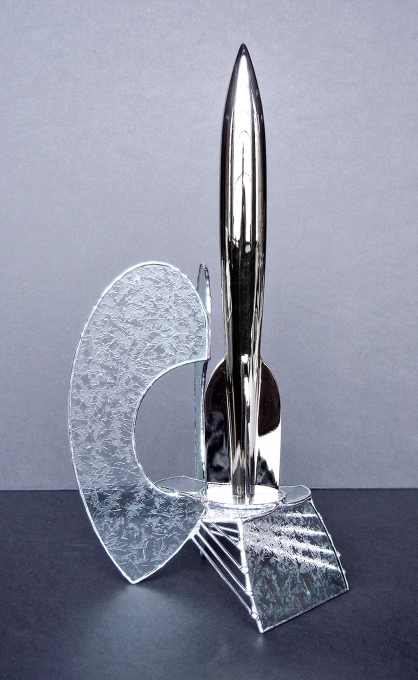It’s not been the best of weeks. Plague and pestilence have swept through the household, hitting everyone except me. How I managed to stay healthy is something of a mystery to me, but I’m not complaining. With all the caretaking I did, a review this week isn’t going to happen. Try as I might, I just wasn’t able to get the reading done. Next week, look for a review of Jason Thummel’s Spear of Destiny. If the rest of it continues to be as good what I’ve read so far, it’s going to be a great read.

Rather than have a blank page for you to stare at, I’m going to round up some stray thoughts. First, is the announcement of this year’s Hugo nominees, to which I would like to offer my congratulations. I had a real “Huh?!?” moment when I saw that there were only three nominees for short story. Our esteemed editor Steve Davidson had some things to say about that in his editorial, which you can read here if you haven’t already. His comments are down at the bottom after the list of the nominees. Steve raises some thought provoking questions.
I’m not going to talk about the short story nominees, for the simple reason I haven’t read any of them yet. Also because, as a short fiction fan, I need some time to process the implications of only three short story nominees. What I am going to talk about is a particular nominee in the novelette category, “In Sea-Salt Tears” by Seanan McGuire, although I haven’t read it either. (Ms. McGuire finds herself in competition with herself; she has a second nominee in the novelette category: “Rat Catcher”. Again, congratulations to Ms. McGuire.)
I’m not going to talk about the merits of the story itself, but rather the fact that it was self published. I was surprised to see it listed this way. Surprised and pleased. A great deal of superior fiction is indie published, and it deserves to be recognized.
We’re in the middle of great changes in the larger publishing world, and those changes are being felt across all genres, ours included. More and more authors are either moving towards a hybrid model in which they publish with traditional publishers as well as publishing their work themselves or they’re leaving traditional publishing all together. And not just the ones who “couldn’t make it in the first place”, either. We’re beginning to see some well-established authors break away from trad publishing.
Whether the trickle will become a stream or not remains to be seen. If the next Fifty Shades of Grey comes from the sf/f field, then things could get interesting, especially where awards are concerned. Even if it doesn’t, we are living in interesting times.
I wrote two weeks ago about crowdfunding and the effect it’s having on publishing. Anyone like to place bets on how long it will be before crowdfunding produces a slew of award nominees? Not me. Too much is changing too fast for me to try to pin down anything like that. Could be next year. Might not ever happen. There’s just no way to tell.
One thing is for certain looking at the short fiction categories. The influence of the major print magazines seems to be waning. Did anyone notice that Analog and F&SF didn’t have any nominees on the final ballot? And Asimov’s, which has dominated the nominations in some years, only had one novella nominated? Or that all the nominees for Semiprozine were all electronically published fiction magazines this year?
I’m still mulling over what relationship these results have with electronic publishing and what they mean for the field as a whole. If I have any profound insights, I’ll pass them along. In the meantime, congratulations again to all the nominees, and especially to Ms. McGuire for her nomination for “In Sea-Salt Tears”.











Thanks for picking up on the Epub angle. I've been ripping through things quickly and been wondering about the short story form. Which has me wondering about how Epub is affecting traditional writing categories.
You're right…things are changing very fast and how it plays out will be anyone's guess.
Short is good.
There's a tendency to overplay a lot of ideas. A lot of novels end up doing that. Good short stories, especially in SF, keep the focus on just the idea. And that's one of th things I like about shorts.